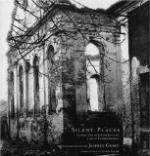[Illustration: The hound sniffed deep, filling his nostrils with the feather snow]
For Jingoss had been awaiting eagerly this fall of snow, as this immediate change of direction showed. He was sure that now they could no longer follow him. It was for this he had lured them farther and farther into the wilderness, waiting for the great enemy of them all to cover his track, to throw across his vanishing figure her ultimate denial of their purposes. At once, convinced of his safety, he turned to the west and southwest.
At just what moment he discovered that he was still followed it was impossible to determine. But very shortly a certain indecision could be read in the signs of his journeying. He turned to the south, changed his mind, doubled on his tracks like a rabbit, finally, his purpose decided, he shot away on the direct line again for the frozen reaches of desolation in the north.
The moment’s flicker of encouragement lighted by the success of the dog, fell again to blackness as the three faced further incursion into the land of starvation. They had allowed themselves for a moment to believe that the Indian might now have reached the limit of his intention; that now he might turn toward a chance at least of life. But this showed that his purpose, or obstinacy or madness remained unchanged, and this newer proof indicated that it possessed a depth of determination that might lead to any extreme. They had to readjust themselves to the idea. Perforce they had to extend their faith, had to believe in the caribou herds. From every little rise they looked abroad, insisting on a childish confidence in the existence of game. They could not afford to take the reasonable view, could not afford to estimate the chances against their encountering in all that vastness of space the single pin-point where grazed abundance.
From time to time, thereafter, the snow fell. On the mere fact of their persistence it had litle effect; but it clogged their snow-shoes, it wore them down. A twig tripped them; and the efforts of all three were needed to aid one to rise. A dozen steps were all they could accomplish without rest; a dozen short, stumbling steps that were, nevertheless, so many mile-posts in the progress to their final exhaustion. When one fell, he lay huddled, unable at once to rally his vital forces to attempt the exertion of regaining his feet. The day’s journey was pitifully short, pitifully inadequate to the imperious demands of that onward-leading Trail, and yet each day’s journey lessened the always desperate chance of a return to the game country. In spite of that, it never again crossed their minds that it might be well to abandon the task. They might die, but it would be on the Trail, and the death clutch of their fingers would still be extended toward the north, where dwelt their enemy, and into whose protective arms their quarry had fled.




